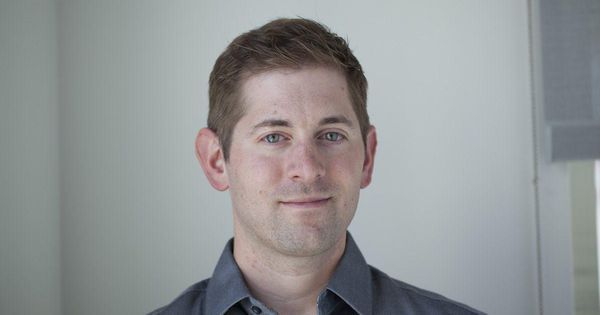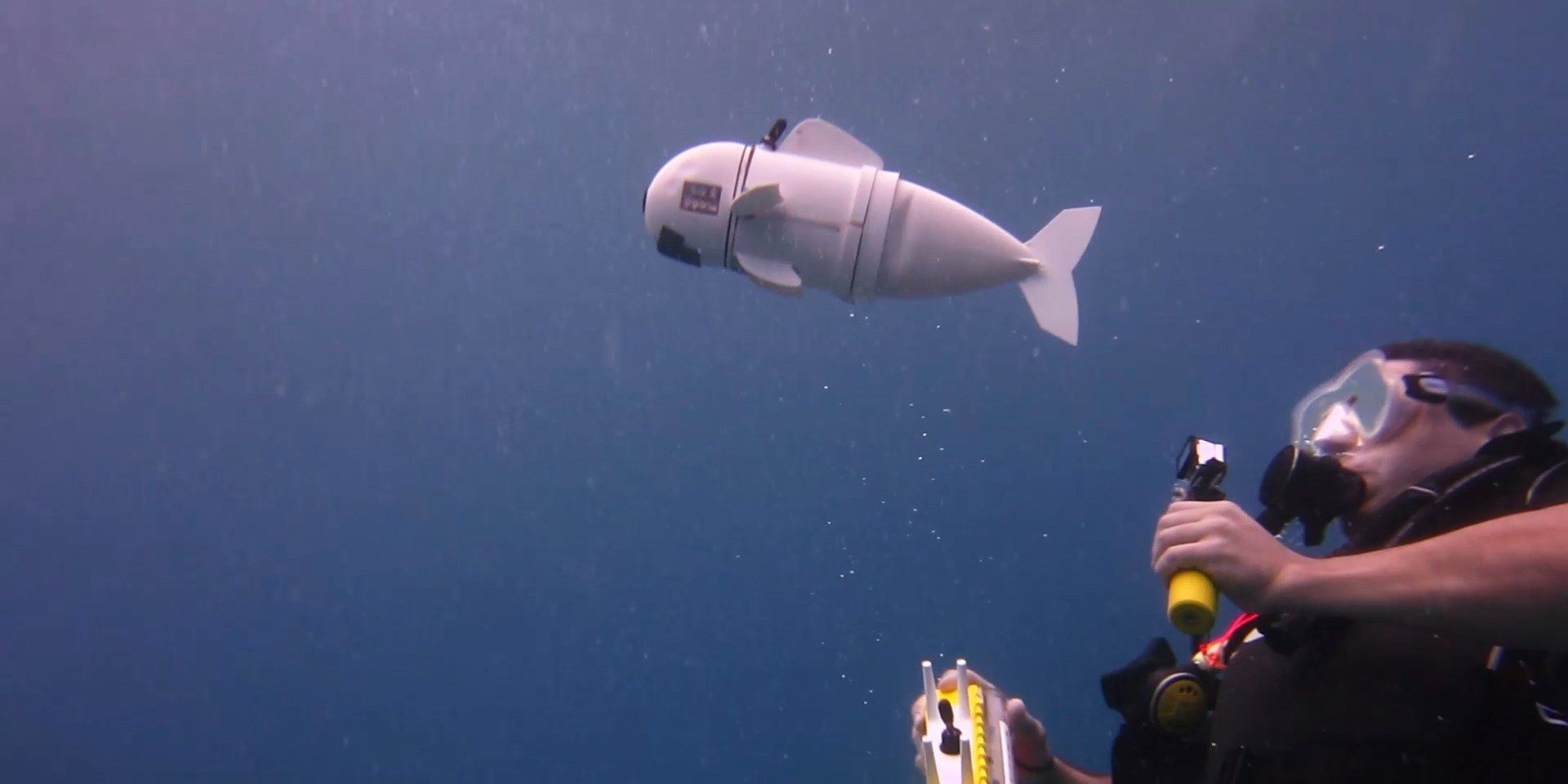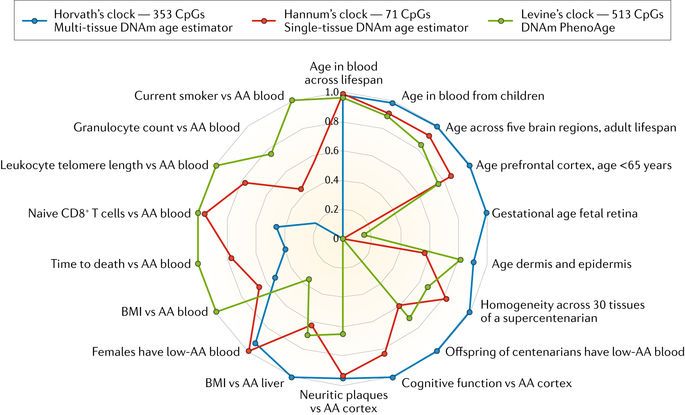Page 9837
Apr 19, 2018
Bolt Threads Debuts New ‘Leather’ Made From Mushroom Roots
Posted by Shailesh Prasad in categories: innovation, materials
The materials innovation startup known for its synthetic spider sillk is rolling out a second bio-material, a leather made from mycelium that can be grown in a small space with a much lower environmental impact than raising cattle.
Apr 19, 2018
Robotic Treatment For Patients With Spinal Cord Injuries
Posted by Shailesh Prasad in categories: biotech/medical, drones, robotics/AI
Robots are going to make life a lot easier for amputees and people with spinal cord injuries. Take HAL from CYBERDYNE for instance: it is robotic assistive limb that improves patients’ ability to walk. HAL uses sensors to detect signals from the patient’s body to assist with desired movement.
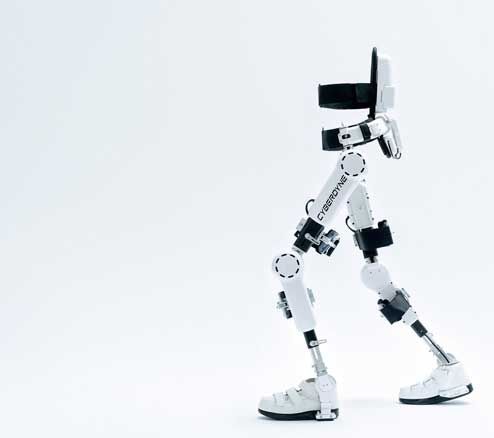
🛩️ Latest App Smart Drones & Multirotors
Apr 19, 2018
Google AI can pick out voices in a crowd
Posted by Shailesh Prasad in categories: biotech/medical, robotics/AI
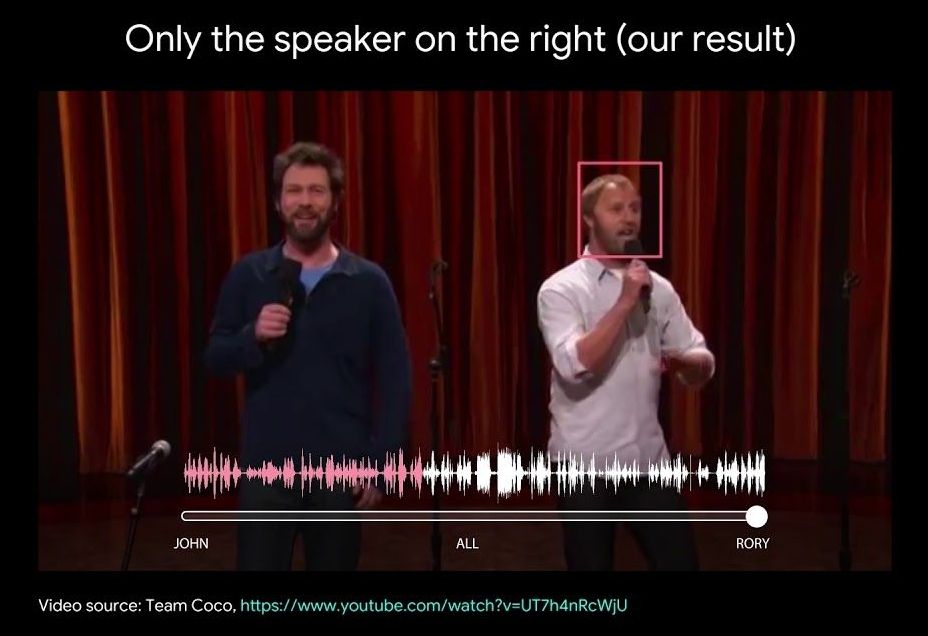
Humans are usually good at isolating a single voice in a crowd, but computers? Not so much — just ask anyone trying to talk to a smart speaker at a house party. Google may have a surprisingly straightforward solution, however. Its researchers have developed a deep learning system that can pick out specific voices by looking at people’s faces when they’re speaking. The team trained its neural network model to recognize individual people speaking by themselves, and then created virtual “parties” (complete with background noise) to teach the AI how to isolate multiple voices into distinct audio tracks.
The results, as you can see below, are uncanny. Even when people are clearly trying to compete with each other (such as comedians Jon Dore and Rory Scovel in the Team Coco clip above), the AI can generate a clean audio track for one person just by focusing on their face. That’s true even if the person partially obscures their face with hand gestures or a microphone.
Continue reading “Google AI can pick out voices in a crowd” »
Apr 19, 2018
Low-latency JPEG XS format is optimized for live streaming and VR
Posted by Shailesh Prasad in categories: drones, internet, mobile phones, robotics/AI, virtual reality
You might only know JPEG as the default image compression standard, but the group behind it has now branched out into something new: JPEG XS. JPEG XS is described as a new low-energy format designed to stream live video and VR, even over WiFi and 5G networks. It’s not a replacement for JPEG and the file sizes themselves won’t be smaller; it’s just that this new format is optimized specifically for lower latency and energy efficiency. In other words, JPEG is for downloading, but JPEG XS is more for streaming.
The new standard was introduced this week by the Joint Photographic Experts Group, which says that the aim of JPEG XS is to “stream the files instead of storing them in smartphones or other devices with limited memory.” So in addition to getting faster HD content on your large displays, the group also sees JPEG XS as a valuable format for faster stereoscopic VR streaming plus videos streamed by drones and self-driving cars.
“We are compressing less in order to better preserve quality, and we are making the process faster while using less energy,” says JPEG leader Touradj Ebrahimi in a statement. According to Ebrahimi, the JPEG XS video compression will be less severe than with JPEG photos — while JPEG photos are compressed by a factor of 10, JPEG XS is compressed by a factor of 6. The group promises a “visual lossless” quality to the images of JPEG XS.
Apr 19, 2018
MIT Unleashes a Hypnotic Robot Fish to Help Save the Oceans
Posted by Shailesh Prasad in categories: robotics/AI, transportation
Like a miniaturized Moby Dick, the pure-white fish wiggles slowly over the reef, ducking under corals and ascending, then descending again, up and down and all around. Its insides, though, are not flesh, but electronics. And its flexible tail flicking back and forth is not made of muscle and scales, but elastomer.
The Soft Robotic Fish, aka SoFi, is a hypnotic machine, the likes of which the sea has never seen before. In a paper published today in Science Robotics, MIT researchers detail the evolution of the world’s strangest fish, and describe how it could be a potentially powerful tool for scientists to study ocean life.
Scientists designed SoFi to solve several problems that bedevil oceanic robotics. Problem one: communication. Underwater vehicles are typically tethered to a boat because radio waves don’t do well in water. What SoFi’s inventors have opted for instead is sound.
Apr 19, 2018
Hurricane Harvey: Research shows most fatalities occurred outside flood zones
Posted by Bill Kemp in categories: climatology, government
A Dutch-Texan team found that most Houston-area drowning deaths from Hurricane Harvey occurred outside the zones designated by government as being at higher risk of flooding: the 100- and 500-year floodplains. Harvey, one of the costliest storms in US history, hit southeast Texas on 25 August 2017 causing unprecedented flooding and killing dozens. Researchers at Delft University of Technology in the Netherlands and Rice University in Texas published their results today in the European Geosciences Union journal Natural Hazards and Earth System Sciences.
“It was surprising to me that so many fatalities occurred outside the flood zones,” says Sebastiaan Jonkman, a professor at Delft’s Hydraulic Engineering Department who led the new study.
Drowning caused 80% of Harvey deaths, and the research showed that only 22% of fatalities in Houston’s 4,600-square-kilometre district, Harris County, occurred within the 100-year floodplain, a mapped area that is used as the main indicator of flood risk in the US.
Continue reading “Hurricane Harvey: Research shows most fatalities occurred outside flood zones” »
Apr 18, 2018
15 Albert Einstein quotes that reveal the mind of a true genius
Posted by Michael Lance in category: futurism
Albert Einstein died exactly 63 years ago today.
Albert Einstein wasn’t just a brilliant physicist — he was also a master at explaining the human condition.
Apr 18, 2018
DNA methylation-based biomarkers and the epigenetic clock theory of ageing
Posted by Manuel Canovas Lechuga in categories: biotech/medical, genetics, life extension
Biomarkers of ageing based on DNA methylation data enable accurate age estimates for any tissue across the entire life course. Horvath and Raj review the development of these ‘epigenetic clocks’ and how they link to biological ageing.
Apr 18, 2018
Finding lost siblings of the Sun
Posted by Narendra Malewar in categories: biotech/medical, space
UNSW scientists in collaboration with European scientists demonstrated that the “DNA”, or spectra, of more than 340,000 stars in the Milky Way could aid them to search the siblings of the Sun, now scattered across the sky.
Scientists actually are working on project GALAH, the survey observations for the ambitious galactic archaeology project- which launched in late 2013 as part of a quest to uncover the formulation and evolution of galaxies. Scientists gathered the data from HERMES spectrograph at the Australian Astronomical Observatory’s (AAO) 3.9-metre Anglo-Australian Telescope near Coonabarabran in NSW to collect spectra for the 340,000 stars.
The data shows that how the Universe went from having just hydrogen and helium soon after the Big Bang to being loaded with every one of the components show now on Earth that is fundamental forever.

